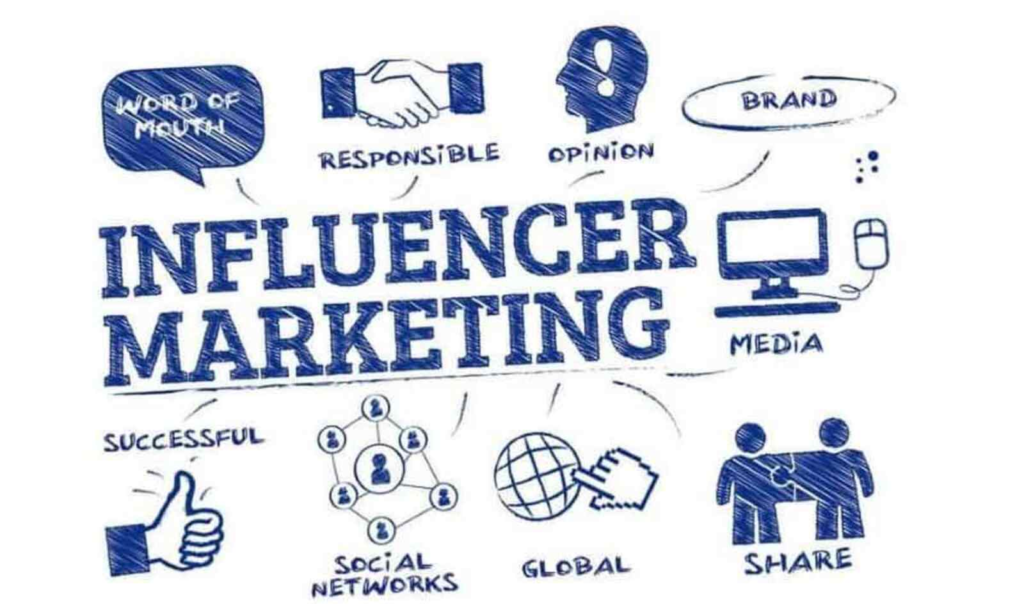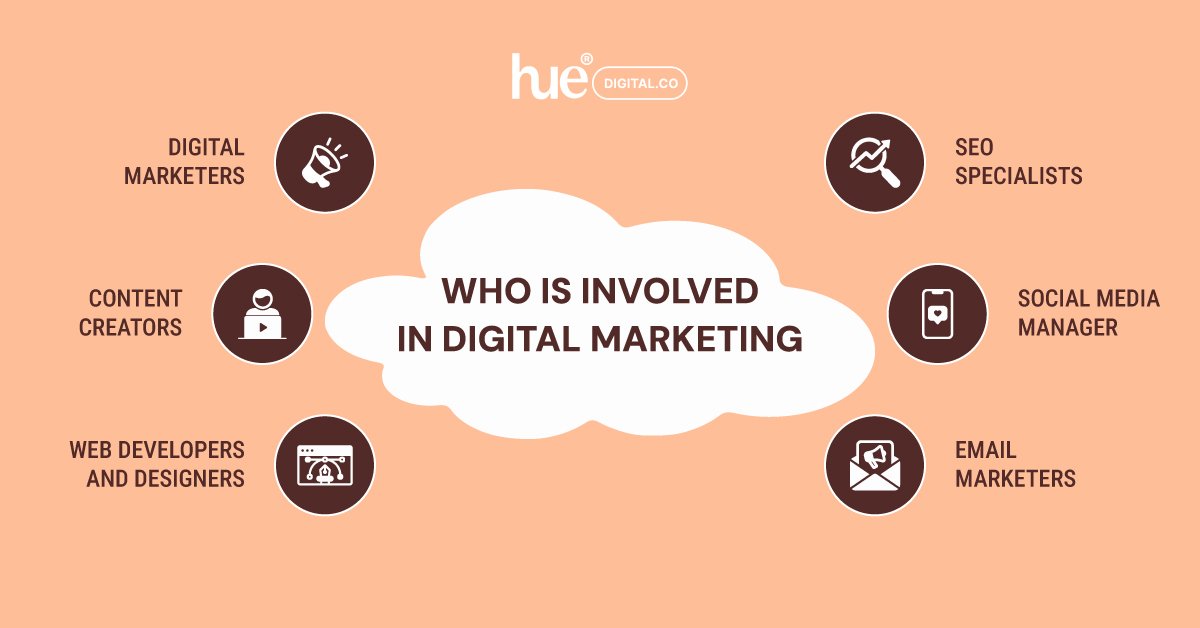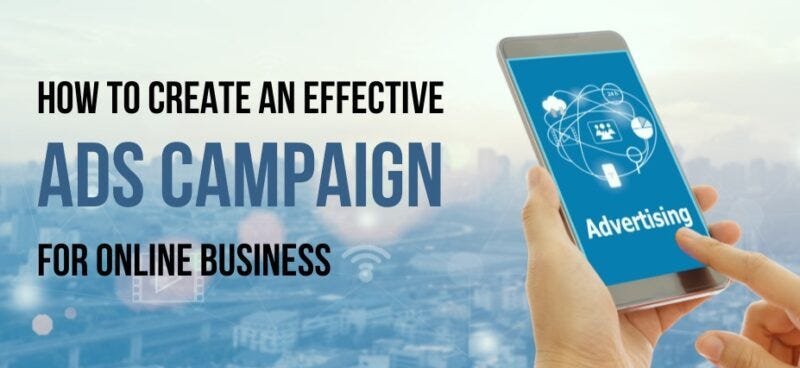Marketing through electronic devices has become a key tool for marketing professionals to promote their products and track their success throughout a customer’s journey. This method, commonly known as digital marketing, primarily targets online audiences using devices such as computers, phones, and tablets. The various techniques involved include online videos, display ads, search engine marketing, paid social advertisements, and social media posts.
By incorporating a digital marketing strategy, businesses can effectively utilize multiple digital platforms including social media, pay-per-click advertising, search engine optimization, and email marketing to engage with both loyal customers and potential prospects. In turn, digital marketing services help in creating a strong brand, offering a seamless customer experience, attracting new customers, and achieving overall success.
What is digital marketing?
Digital marketing, known as online marketing, is a means of connecting with potential customers through the vast world of the internet and other digital platforms. This encompasses techniques such as email marketing, social media promotions, web-based advertisements, and even the use of text and multimedia messages as effective channels for marketing.
In simpler terms, if a brand’s promotional efforts involve digital communication, then it falls under the realm of a digital marketing solutions company

How does a business define digital marketing?
In today’s highly competitive business world, having a strong digital presence is crucial for promoting your brand and capturing the attention of potential customers. It is becoming increasingly common for every business to have a functioning website and a presence on popular social media platforms, along with a strategic approach to digital advertising. Consumers have come to expect and rely on digital content when researching and learning about different brands.
Why is digital marketing important?
It’s no secret that marketing plays a crucial role in the success of any business. While all forms of marketing have their merits, the best digital marketing agency in Gurgaon has emerged as a must-have in today’s fast-paced world. Why?
With social media, email, and text messaging at our fingertips, digital marketing provides numerous avenues for reaching and engaging with your target audience. And for small businesses in particular, the minimal upfront costs make it a smart and cost-effective choice. But what sets digital marketing solutions companies apart is its ability to expertly target and connect with potential customers who are most likely to purchase your product or service.
Let’s not forget about the other benefits of digital marketing. It levels the playing field, giving small businesses an equal chance to compete with bigger brands. It’s also measurable, so you can track your success daily and make necessary changes as needed. And with the ability to engage audiences at every stage of the buying journey, digital marketing has the potential to improve your conversion rates and attract high-quality leads.
Who is Involved in Digital Marketing?
Each person involved in digital marketing plays a vital role in creating a comprehensive and successful strategy. Let’s take a closer look at the responsibilities and contributions of these key players:
1. Digital Marketers
Digital marketers are the masterminds behind the overall marketing plan. They carefully establish goals, identify target audiences, and determine the most effective channels to reach them. They also manage budgets, monitor campaign success, and make necessary adjustments based on data analysis. Their primary purpose is to ensure that the marketing efforts align with the company’s objectives and generate a positive return on investment.
2. Content Creators
The storytellers of the digital marketing realm, content creators have the power to captivate audiences through a variety of mediums such as blog posts, articles, videos, infographics, and social media posts. Their ultimate goal is to engage users, convey the brand’s message, and provide value. High-quality, engaging content not only attracts visitors but also maintains their interest and encourages them to take action.
3. Web Developers and Designers
As a website is often the first point of contact between a business and its audience, web developers and designers have a critical role in creating a visually appealing and user-friendly online presence. They ensure that the website is responsive (compatible with various devices), loads quickly, and provides a seamless experience for users.
4. SEO Specialists
An essential part of digital marketing, SEO specialists play a crucial role in improving a website’s visibility on search engines like Google. They conduct detailed keyword research, optimize on-page and off-page elements, and monitor search engine rankings.
5. Social Media Managers
Social media managers are responsible for creating and curating content for various platforms such as Facebook, Twitter, Instagram, and LinkedIn. They engage with followers, respond to comments and messages, and track key performance metrics. Effective social media management can significantly impact brand awareness, foster customer loyalty, and drive traffic to the website.
6. Email Marketers
Even with the rise of various digital communication channels, email marketing remains one of the most effective ways to directly reach customers. Email marketers create targeted campaigns, segment email lists, and use automation to send personalized messages that nurture leads, promote products or services, and maintain ongoing communication with customers. Ultimately, this can lead to conversions and repeat business.
Types of Digital Marketing
Search Engine Optimization

The world of digital marketing is vast and diverse, with many different specialties and methods for using digital channels to reach potential customers. Some popular techniques in this realm include search engine optimization, or SEO, which is all about making your web pages more attractive to search engines, and thus more likely to show up in search results.
This involves both scientific methods, like researching and considering various factors that contribute to high search engine rankings, as well as an artistic touch to make your webpage stand out and catch the attention of potential customers. Ultimately, SEO is a powerful marketing tool that can greatly enhance your online presence and visibility.
Today, the most important elements to consider when optimizing a web page for search engines include:
- Quality of content
- Level of user engagement
- Mobile-friendliness
- Number and quality of inbound links
Aside from the mentioned components, it’s crucial to optimize the technical aspects of your website known as technical SEO. This encompasses the complex back-end mechanics of your site, such as URL structure, loading times, and broken links. Enhancing your technical SEO capabilities can greatly assist search engines in efficiently crawling and navigating your site.
The ultimate objective is to secure a spot on the first page of a search engine’s results. This guarantees that potential customers searching for keywords related to your brand will have effortless access to your products or services. While there are various search engines, digital marketers typically concentrate on Google due to its leadership in the search engine market worldwide.
Content marketing

As mentioned, the quality of your content is a key component of an optimized page. As a result, SEO is a major factor in content marketing, a strategy based on the distribution of relevant and valuable content to a target audience.
As in any marketing strategy, the goal of content marketing is to attract leads that ultimately convert into customers. But it does so differently than traditional advertising. Instead of desirable prospects with potential value from a product or service, it offers value for free in the form of written material, such as:
- Blog posts
- E-books
- Newsletters
- Video or audio transcripts
- Whitepapers
- Infographics
Content marketing matters, and there are plenty of stats to prove it:
- 84% of consumers expect companies to produce entertaining and helpful content experiences
- 62% of companies that have at least 5,000 employees produce content daily
- 92% of marketers believe that their company values content as an important asset
Content marketing is an incredibly powerful tool, but let’s be honest – it can also be pretty tricky. As writers, our goal is twofold: we want to not only create content that ranks high in search engine results, but also captivates and resonates with our readers, inspiring them to read, share, and engage with our brand. And when we hit that sweet spot, oh boy, does it pay off – building strong relationships with potential customers throughout the entire sales process.
Social media marketing

Social media marketing is all about connecting with people and building relationships through online conversations. By utilizing this strategy, you can effectively showcase your brand, products, services, and unique culture. With a vast number of individuals constantly engaged on various social media platforms, incorporating social media marketing into your digital strategy can yield beneficial results.
Some of the most widely used platforms for social media marketing are Facebook, Twitter, and Instagram, followed closely by LinkedIn and YouTube. However, the selection of which platforms to use for your specific business ultimately depends on your target audience and overall goals. For instance, if your startup is seeking new leads, focusing on LinkedIn would be beneficial due to the high number of industry professionals actively using the platform. On the other hand, if your brand caters to a younger demographic, investing in social media ads on Instagram may prove more successful.
Contrary to popular belief, the ultimate goal of social media marketing may not be direct sales. Many brands use this approach as a means to initiate meaningful conversations with their audience, rather than focusing solely on encouraging immediate purchases. This approach is especially prevalent among brands that cater to an older demographic or offer products and services that do not lend themselves to impulsive buying. Ultimately, the direction of your social media marketing efforts should align with the goals of your brand.
To create an effective social media marketing strategy, it’s crucial to follow best practices. Here are a few of the most important social media marketing best practices:
- Craft high-quality and engaging content
- Reply to comments and questions in a professional manner
- Create a social media posting schedule
- Post at the right time
- Hire social media managers to support your marketing efforts
- Know your audience and which social media channels they’re most active on
Search Engine Marketing (SEM)

As a business owner, it can be incredibly exciting to have your potential customers actively searching for products or services that align with your business. It is the perfect opportunity to promote your business and attract new leads. Luckily, two effective strategies can help you do just that: paid advertising and search engine optimization (SEO).
One popular method of paid advertising is search engine marketing (SEM), where you can place ads on search engines such as Bing and Google. These ads appear seamlessly on top of search engine results pages, providing instant visibility for your business. It’s a smart form of native advertising that can really boost your website traffic. Don’t miss out on this opportunity to reach potential customers through SEM!
Pay-per-click marketing

Pay-per-click, or PPC, is a form of digital marketing in which you pay a fee every time someone clicks on your digital ads. So, instead of paying a set amount to constantly run targeted ads on online marketing channels, you only pay for the ads individuals interact with. How and when people see your ad is a bit more complicated.
One of the most common types of PPC is search engine advertising, and because Google is the most popular search engine, many businesses use Google Ads for this purpose. When a spot is available on a search engine results page, also known as a SERP, the engine fills the spot with what is essentially an instant auction. An algorithm prioritizes each available ad based on several factors, including:
- Ad Quality
- Keyword relevance
- Landing page quality
- Bid Amount
As part of our online marketing strategy, Hue Digital, the best digital marketing agency in Gurgaon strives to have our PPC ads prominently displayed at the top of search engine results. This ensures that when individuals search for a particular topic, our ads catch their attention and encourage them to take action. Our carefully crafted PPC campaigns have clear objectives for viewers to fulfill upon clicking on an ad.
Affiliate marketing

One profitable method of digital marketing is known as affiliate marketing. Essentially, it enables individuals to earn income by promoting other businesses.
The beauty of this approach lies in its simplicity, as both the promoter and the business can benefit from this arrangement.
The mechanics of this strategy are based on a revenue-sharing concept. In other words, as an affiliate, every sale you help generate earns you a commission. Merchants, compensate their affiliates for the sales they bring in.
Some affiliates choose to uphold products from a single company, showcasing them on their blog or other external platforms. Others, however, cultivate relationships with a variety of merchants.
Native advertising

Native advertising is like a chameleon in the digital world. It can seamlessly blend in with its surroundings, making it harder for consumers to detect its true form as advertising. This crafty marketing tactic was developed as a response to the skepticism of modern consumers toward traditional ads. In a world where ads are seen as biased and disregarded, native advertising offers a clever alternative by providing valuable information or entertainment before subtly introducing its promotional message.
However, it’s crucial to be transparent about native ads by clearly labeling them as “promoted” or “sponsored.” Failure to do so can lead to readers investing their time in the content, only to realize later that it was all a cleverly disguised advertisement. Honesty is the key to success with native advertising, as it helps build trust and credibility with your audience.
Influencer marketing

Like affiliate marketing, influencer marketing relies on working with an influencer–an individual with a large following, such as a celebrity, industry expert, or content creator–in exchange for exposure. In many cases, these influencers will endorse your products or services to their followers on several social media channels.
Influencer marketing works well for B2B and B2C companies who want to reach new audiences. However, it’s important to partner with reputable influencers since they’re essentially representing your brand. The wrong influencer can tarnish the trust consumers have in your business.
Email marketing

The concept of email marketing is simple—you send a promotional message and hope that your prospect clicks on it. However, the execution is much more complex. First of all, you have to make sure that your emails are wanted. This means having an opt-in list that does the following:
- Individualizes the content, both in the body and in the subject line
- States clearly what kind of emails the subscriber will get
- An email signature that offers a clear unsubscribe option
- Integrates both transactional and promotional emails
Email marketing is a proven, effective technique all on its own: 89% of surveyed professionals named it as their most effective lead generator.
It can be even better if you incorporate other digital marketing techniques such as marketing automation, which lets you segment and schedule your emails so that they meet your customer’s needs more effectively.
If you’re considering email marketing, here are a few tips that can help you craft great email marketing campaigns:
- Segment your audience to send relevant campaigns to the right people
- Ensure emails look good on mobile devices
- Create a campaign schedule
- Run A/B tests
How to create a digital marketing strategy
For many small businesses and beginner digital marketers, getting started with digital marketing services can be difficult. However, you can create an effective digital marketing strategy to increase brand awareness, engagement, and sales by using the following steps as your starting point.
Set SMART goals
Setting specific, measurable, achievable, relevant, and timely (SMART) goals is crucial for any marketing strategy. While there are many goals you may want to achieve, try to focus on the ones that will propel your strategy forward instead of causing it to remain stagnant.
Identify your audience
Before starting any marketing campaign, it’s best to identify your target audience. Your target audience is the group of people you want your campaign to reach based on similar attributes, such as age, gender, demographic, or purchasing behavior. Having a good understanding of your target audience can help you determine which digital marketing channels to use and the information to include in your campaigns.
Create a budget
A budget ensures you’re spending your money effectively towards your goals instead of overspending on digital marketing channels that may not provide the desired results. Consider your SMART goals and the digital channel you’re planning to use to create a budget.
Select your digital marketing channels
From content marketing to PPC campaigns and more, there are many digital marketing channels you can use to your advantage. Which digital marketing channels you use often depends on your goals, audience, and budget.
Refine your marketing efforts
Make sure to analyse your campaign’s data to identify what was done well and areas for improvement once the campaign is over. This allows you to create even better campaigns in the future. With the help of digital technologies and software, you can obtain this data in an easy-to-view dashboard.
B2B versus B2C digital marketing

Digital marketing strategies work for B2B (business-to-business) as well as B2C (business-to-consumer) companies, but best practices differ significantly between the 2. Here’s a closer look at how digital marketing is used in B2B and B2C marketing strategies.
- B2B clients tend to have longer decision-making processes and thus longer sales funnels. Relationship-building strategies work better for these clients, whereas B2C customers tend to respond better to short-term offers and messages.
- B2B transactions are usually based on logic and evidence, which is what skilled B2B digital marketers present. B2C content is more likely to be emotionally based, focusing on making the customer feel good about a purchase.
- B2B decisions tend to need more than 1 person’s input. The marketing materials that best drive these decisions tend to be shareable and downloadable. B2C customers, on the other hand, favor one-on-one connections with a brand.
Of course, there are exceptions to every rule. We have an affordable digital marketing service in Gurgaon with a high-ticket product, such as a car or computer, which might offer more informative and serious content. As a result, your digital marketing strategy always needs to be geared toward your customer with a good and creative digital marketing agency base, whether you’re B2B or B2C.






